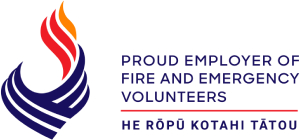Fatigue and Tiredness
By Alexander Slesarenko
Fatigue can be confused with tiredness. Everyone gets tired. It is an expected feeling at the end of the day or after certain activities and we generally know why we’re tired and correct it with sleep.
Fatigue is different. It is a daily lack of energy, unusual or excessive whole-body tiredness that is not relieved by sleep. Duration can be a month or less, or from one to six months or longer and can have a negative impact on a person’s ability to function and their quality of life.
The term is used to describe an overall feeling of tiredness or lack of energy. It is not the same as simply feeling drowsy or sleepy. When you are fatigued, you have no motivation and no energy. Being sleepy may be a symptom of fatigue, but it is not the same thing.
Fatigue is a symptom of many medical conditions that range in severity from mild to serious. It can also be a natural result of some lifestyle choices, such as lack of exercise or poor diet.
Symptoms are: Lack of energy – you may just want to stay in bed all day; feeling like you just cannot be bothered to do much; sleeping problems such as being unable to sleep or having a disturbed sleep; finding it hard to get up in the morning; feeling anxious, sad or depressed; pain in your muscles – you may find it hard to climb stairs or walk short distances; being breathless after doing small tasks like having a shower or making your bed; finding it hard to concentrate, even just watching TV or talking to a good friend; finding it hard to think clearly or make decisions easily; loss of interest in doing things you usually enjoy; negative feelings about yourself and others.
The following conditions can be attributable to Fatigue (HEMIFADO):
- Heart failure/haemochromatosis/hypothyroid/hepatitis
- Endocrine (diabetes/hypothyroidism/adrenal insufficiency)
- Malignancy
- Infections (Infective Endocarditis)
- Fatigue Syndrome
- Anaemia
- Diet/Drug/Depression
- Obstructive sleep apnoea/Obesity
Chronic fatigue syndrome is characterized by extreme fatigue that lasts for at least 6 months and that cannot be fully explained by an underlying medical condition. Fatigue worsens with physical or mental activity but does not improve with rest. Characteristic symptoms are sleep that is not refreshing, difficulties with memory, focus and concentration, dizziness that worsens with moving from lying down or sitting to standing.
Causes of Chronic Fatigue are viral infections such as Covid-19, immune system problems, hormonal imbalances, physical or emotional trauma. These can lead to lifestyle restrictions, increased work absences, social isolation, and depression.
Fatigue can be the symptom of a severe underlying condition that should be investigated regardless of age.
Back to Blog







